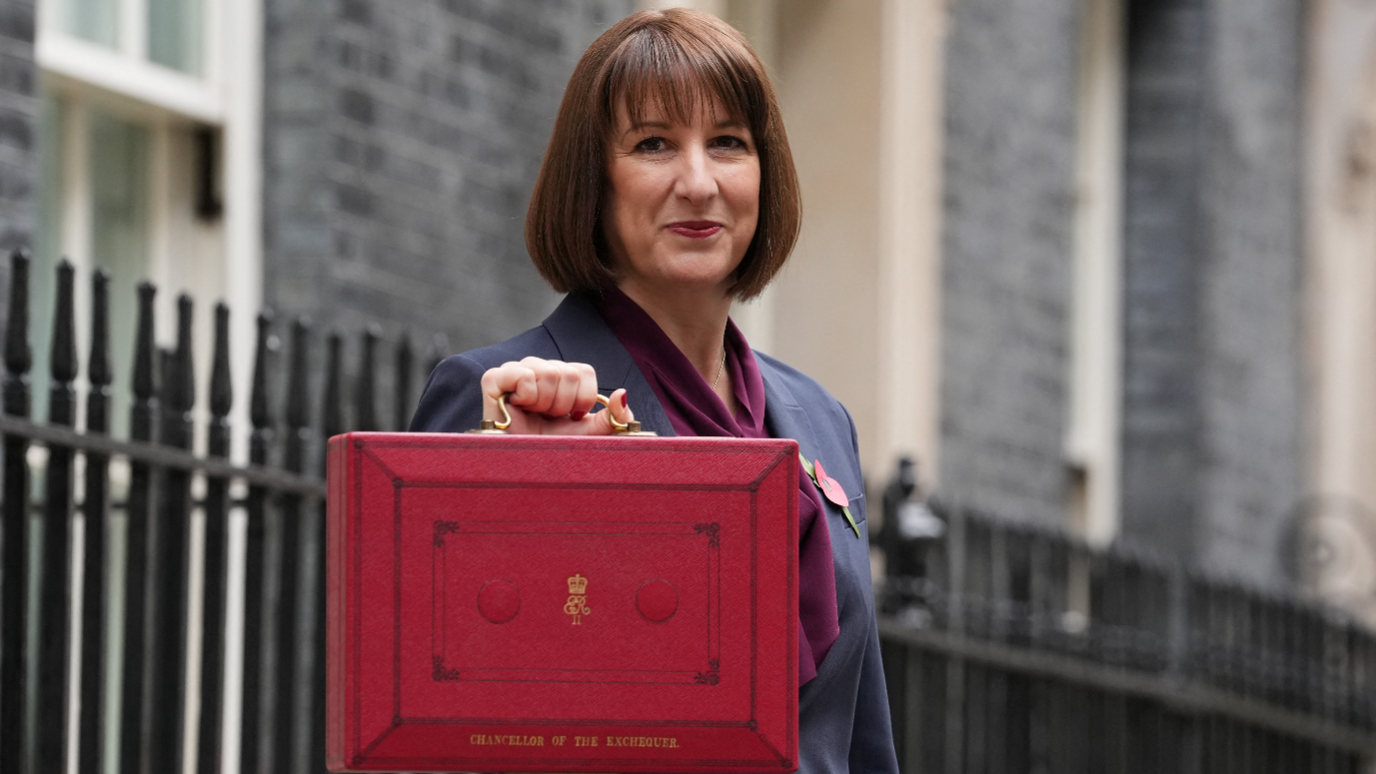Over 21s to get £12.71 an hour as minimum wage increased

- Published
Millions of people are set to get a pay rise from April due to an increase in the minimum wage, the government has announced ahead of Wednesday's Budget.
The hourly rate for over-21s will rise by 50p to £12.71, with workers aged 18-20 seeing an 85p rise to £10.85, and under-18s and apprentices getting 45p more to £8 an hour.
Chancellor Rachel Reeves said 2.7 million people will benefit from the increases, which will take effect from April next year.
However, businesses have warned that further increases to the minimum wages could result in hiring freezes.
The minimum wage increases are on top of a 6.7% rise for over-21s and a 16.3% rise for 18 to 20-year-olds respectively last year, when there was also a rise in employers' National Insurance contributions.
Reeves said the cost of living was still the biggest issue for working people.
"The economy isn't working well enough for those on the lowest incomes," she added.
As well as minimum wage increases, the government has confirmed an expansion of the so-called "sugar tax" to include milk-based drinks.
Also confirmed is an expansion of the Help to Save scheme, which incentivises people on low incomes to save money.
Other possible announcements on Wednesday include lowering the tax-free allowance for cash Isas and the introduction of a so-called "mansion tax" on high-value homes in England.
What you need to know about the minimum wage
- Published4 hours ago
The Treasury said the new minimum wage rates for 2026 struck a balance between "the needs of workers, the affordability for businesses and the opportunities for employment".
But higher wages pushes up running costs for firms, which can react by reducing hiring, giving lower pay rises to other workers or raising prices for customers.
There is widespread evidence that employers have taken some or all of these steps in the last year, following previous hikes and tax rises.
However, the Low Pay Commission, the government agency which recommended the increases - said it was of the view that previous minimum wage rises for over-21s had "not had a significant negative impact on jobs".
The Resolution Foundation think tank, which focuses on low to middle-income households, said the increase for 18 to 20-year-olds was "unnecessarily big" and could make it harder for people in that age group to find a job.
"These steep increases risk causing more harm than good if they put firms off hiring and push up NEET [not in education, employment or training] rates."
How much is the minimum wage going up by?
The minimum wage for over-21s, known as the National Living Wage, will rise by 4.1%. For someone working full-time (37.5 hours a week), that equates to £900 more a year to £24,784.50.
The minimum wage for 18 to 20-year-olds known as the National Minimum Wage will go up by 8.5%. For someone that age working 20 hours a week, this would be £21,157.50. The government has said it wants to phase out a separate band for this age group, and establish a single rate for all adults
16 and 17-year-olds and apprentices will see their minimum wage increase by 6%
Katherine Chapman, director of the Living Wage Foundation which recommends a higher voluntary hourly rate of pay, said the rise still fell short of covering the cost of living.
"The real living wage is currently £13.45 in the UK with a higher rate of £14.80 in London."
Ms Chapman said 16,000 employers had already committed to going beyond the legally required minimum.
But the Trades Union Congress (TUC) said phasing out the separate rate for 18 to 20 year olds was "absolutely the right call".
"With living costs stubbornly high, an above-inflation pay rise will make a real difference to the lowest-paid," said TUC General Secretary Paul Nowak added.
"Young workers have bills like everyone else and deserve a fair day's pay for a fair day's work. It's right they see a larger rise as youth rates are phased out."
Cost to businesses
Kate Nicholls, the chair of UK Hospitality, a trade body which represents more than 700 companies and 123,000 venues in the hospitality industry, called on the chancellor to reduce the industry's tax burden "if businesses are expected to sustain this level of annual wage increase".
"Hospitality businesses have reached their limit of absorbing seemingly endless additional costs. They will simply all be passed through to the consumer, ultimately fuelling inflation."
Jane Gratton, deputy director of public policy at the British Chambers of Commerce, added every above-inflation wage increase "leads to higher business costs, lower investment and fewer opportunities for individuals".
"There's a limit to how much additional cost employers can bear without something having to give," she said.
The chair of the Low Pay Commission, Philippa Stroud, said it had considered the effect a raise would have on employers.
Baroness Stroud, a Conservative peer, said: "In our discussions this year with workers and employers alike, it has been clear that no one is having an easy time."
Get in touch
Will you be affected by the minimum wage rise? Get in touch.
Related topics
- Published16 minutes ago

- Published1 day ago

- Published2 days ago

- Published22 hours ago
